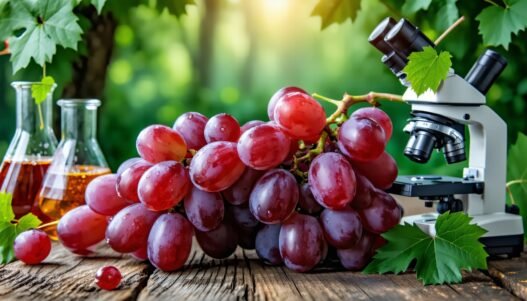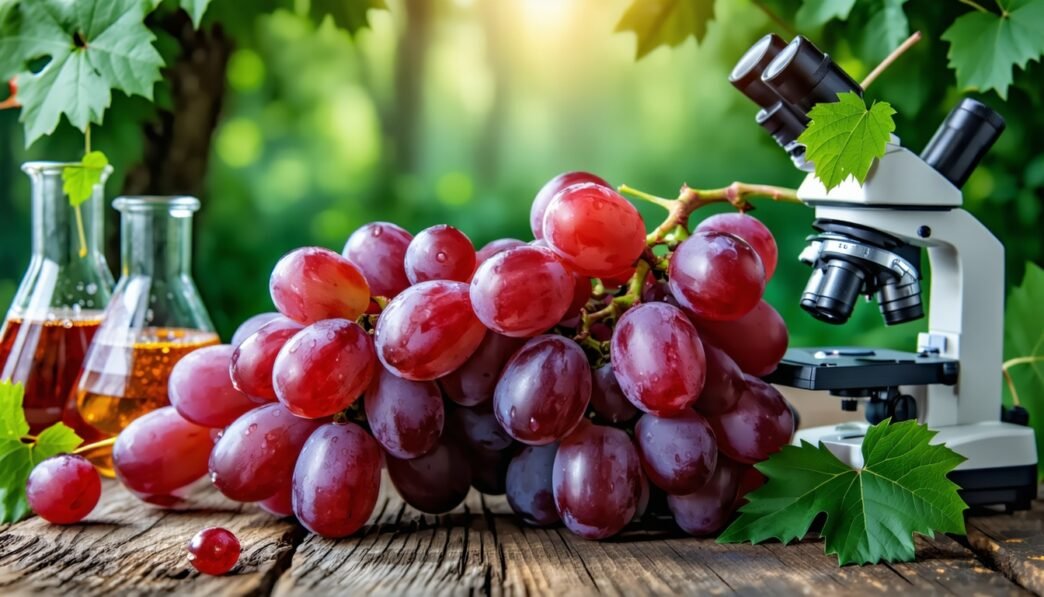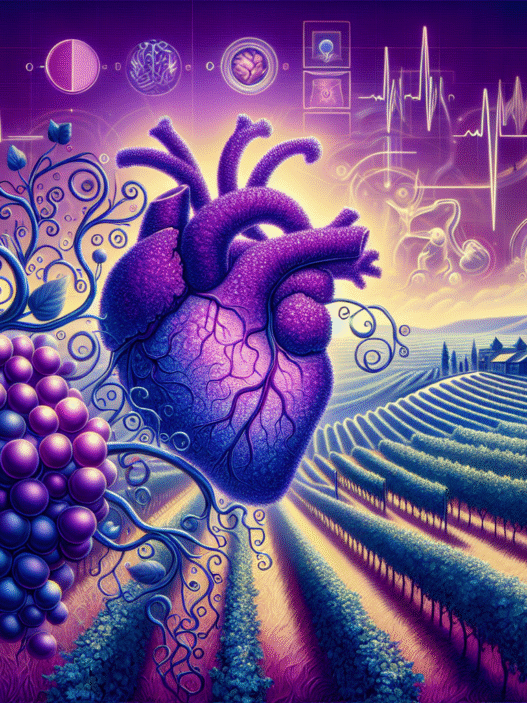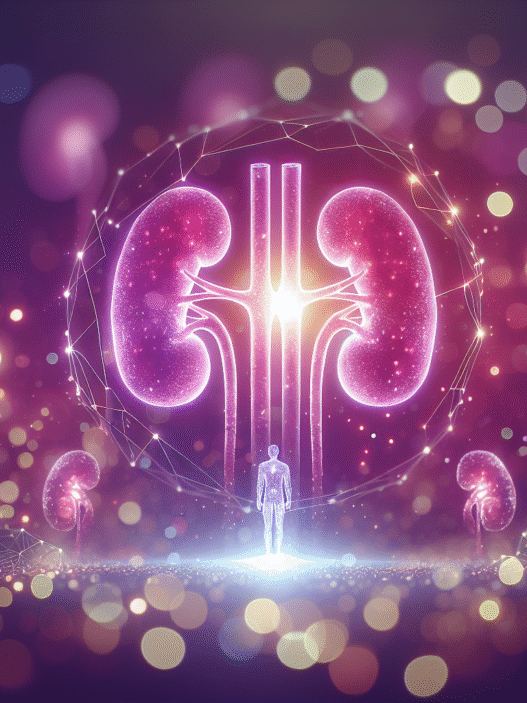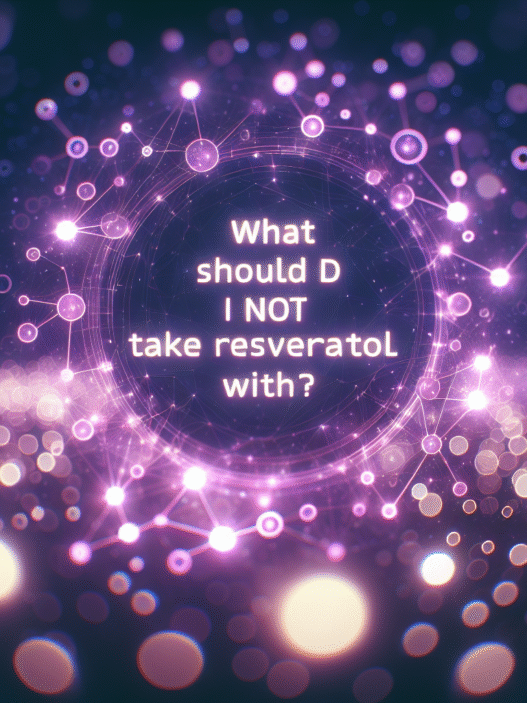Understanding Resveratrol
Resveratrol has garnered interest in the fields of health and aging, particularly among longevity and anti-aging enthusiasts. This section provides insights into its natural sources and the different forms of supplements available for consumption.
Natural Sources of Resveratrol
Resveratrol is a natural stilbene and non-flavonoid polyphenol, known for its phytoestrogen properties. It can be found in a range of foods, making it accessible for many individuals looking to enhance their diet with this beneficial compound. Key sources of resveratrol include:
- Grapes
- Red wine
- Peanuts
- Pistachios
- Blueberries
- Cranberries
Resveratrol is also present in over 70 plant species, which further emphasizes its widespread availability in nature. Below is a table summarizing some common resveratrol-containing foods:
| Food Source | Resveratrol Content (mg per 100g) |
|---|---|
| Grapes | 0.24 – 1.25 |
| Red Wine | 0.3 – 2.0 |
| Peanuts | 0.01 – 0.25 |
| Blueberries | 0.05 – 0.1 |
| Cranberries | 0.05 – 0.1 |
Forms of Resveratrol Supplements
For those seeking to increase their intake of resveratrol beyond dietary sources, supplements are available in several forms. Each form has its own benefits, catering to different preferences and lifestyle needs. The common forms of resveratrol supplements include:
- Tablets
- Softgels
- Capsules
- Powders
These supplements can be an effective way to ensure adequate intake, especially for individuals who may find it challenging to consume enough resveratrol-rich foods. More information on selecting quality supplements can be found in our article on resveratrol supplements.
With its promising health benefits, resveratrol is becoming increasingly popular among those interested in longevity and anti-aging strategies. Understanding its natural sources and available supplement forms can help individuals make informed choices to enhance their well-being. For additional insights into the health benefits of resveratrol, visit our article on resveratrol health benefits.
Health Benefits of Resveratrol
Resveratrol, a polyphenol compound found in various plants, has garnered interest due to its numerous health benefits, particularly in relation to circulatory function, bone health, and cardiovascular disease risk reduction.
Improved Circulatory Function
Resveratrol has demonstrated potential benefits for enhancing circulatory health, especially in postmenopausal women. Research indicates that resveratrol may improve circulation and overall well-being, potentially leading to better vascular health and reduced discomfort associated with poor blood flow.
| Benefit | Description |
|---|---|
| Enhanced circulation | Improved blood flow and vascular function |
| Well-being | Increased comfort in postmenopausal women |
Potential Bone-Protective Effects
In various in vitro and in vivo studies, resveratrol has been noted for its ability to inhibit all stages of carcinogenesis. This suggests its potential as a candidate for the prevention and treatment of several types of cancer, which indirectly supports bone health by inhibiting processes that can lead to bone degeneration and related health issues (PMC). Resveratrol’s role in maintaining bone density can be crucial as individuals age.
| Benefit | Description |
|---|---|
| Inhibition of carcinogenesis | May help in preventing cancer-related bone issues |
| Potential bone protection | Supports bone density and health over time |
Lower Risk of Cardiovascular Diseases
The benefits of resveratrol extend to cardiovascular health as well. Its antiplatelet activity may help reduce the risk of cardiovascular diseases by preventing blood clots and promoting better blood flow. Additionally, resveratrol has shown potential for mildly improving renal function in the general adult population.
Moreover, resveratrol displays pleiotropic anti-cancer effects by modulating pathways involved in cancer cell regulation and inflammation. This versatile action contributes to lowering cardiovascular disease risk.
| Benefit | Description |
|---|---|
| Antiplatelet activity | Reduces risk of blood clots and improves heart health |
| Renal function improvement | May support kidney health |
| Pleiotropic effects | Affects multiple pathways related to cancer and inflammation |
Individuals exploring resveratrol benefits will find a spectrum of advantages that contribute to a healthier, longer life. The versatile nature of this compound has made it a topic of interest for those pursuing anti-aging and longevity solutions. Understanding the multifaceted benefits of resveratrol is essential in harnessing its potential for health enhancement. For those interested in supplementation, consider exploring the various resveratrol supplements available on the market.
Resveratrol and Cancer
Resveratrol has garnered increasing attention for its potential in cancer treatment and prevention. This section explores three critical ways in which resveratrol influences cancer, including its ability to inhibit cancer cell proliferation, affect cancer cell migration and invasion, and modulate steroid hormone-dependent pathways.
Inhibition of Cancer Cell Proliferation
Research indicates that resveratrol can inhibit cancer cell proliferation through various mechanisms. Notably, it promotes apoptosis—programmed cell death—and exhibits antiestrogenic effects, particularly in cancers such as breast and prostate (Memorial Sloan Kettering). This property makes resveratrol a subject of interest for those investigating alternative cancer therapies.
| Mechanism | Description |
|---|---|
| Apoptosis Induction | Triggering cell death in cancer cells. |
| Antiestrogenic Effects | Inhibiting estrogen’s effects, which can promote certain cancers. |
Effects on Cancer Cell Migration and Invasion
Resveratrol has been shown to possess anti-tumor-progression activity by inducing cell cycle arrest in the G0/G1 phase and modulating crucial regulatory proteins, such as cyclins and cyclin-dependent kinases (CDKs). It also activates the p53-dependent pathway, promoting apoptosis in various human tumor cells. Furthermore, resveratrol interferes with the mitogen-activated protein kinase (MAPK) pathway and inhibits nuclear factor-kappa B (NF-κB) activation, thus affecting multiple signal-transduction pathways that control cell growth, inflammation, and metastasis.
| Mechanism | Effects |
|---|---|
| Cell Cycle Arrest | Prevents cancer cells from dividing. |
| Apoptosis Promotion | Encourages cancer cell death. |
| MAPK Pathway Interference | Disrupts signals crucial for cancer progression. |
Modulation of Steroid Hormone-Dependent Pathways
Resveratrol is recognized as a phytoestrogen, possessing anti-oxidant and anti-inflammatory properties along with its anticancer effects. It has demonstrated the ability to reverse multidrug resistance in cancer cells and sensitize them to common chemotherapeutic agents when used in combination with clinically employed drugs. Many studies affirm resveratrol’s capability to inhibit all stages of carcinogenesis: initiation, promotion, and progression, highlighting its potential as a treatment and preventive measure for various cancers (PMC).
| Mechanism | Benefits |
|---|---|
| Phytoestrogen Activity | Can modulate hormone-related cancer growth. |
| Multidrug Resistance Reversal | Enhances efficacy of chemotherapy. |
| All Stages of Carcinogenesis Inhibition | Potential for comprehensive cancer prevention. |
In summary, research into resveratrol continues to unveil its multifaceted roles in cancer biology. From inhibiting cell proliferation to influencing critical pathways associated with hormone-dependent cancers, resveratrol holds promise for those seeking strategies in cancer prevention and therapy. For further exploration of resveratrol’s benefits, check out our article on resveratrol benefits and resveratrol supplements.
Side Effects and Cautions
While resveratrol presents various potential health benefits, including its use in the context of resveratrol for cancer, it is essential for users to be aware of certain side effects and precautions.
Gastrointestinal Symptoms
High doses of resveratrol may lead to gastrointestinal issues. Individuals may experience mild to moderate symptoms, including diarrhea, especially when consuming resveratrol supplements in excessive amounts. It is advisable for users to monitor their intake and consult healthcare professionals if adverse symptoms arise (Memorial Sloan Kettering). Here is a summary of potential gastrointestinal issues associated with high doses:
| Side Effect | Likelihood |
|---|---|
| Mild gastrointestinal symptoms | Possible |
| Diarrhea | Possible |
Potential Risks in Cosmetic Use
Individuals using resveratrol in topical applications should also exercise caution. Case reports indicate that resveratrol, when used as an ingredient in cosmetic creams, may cause contact dermatitis. This allergic reaction can lead to skin irritation, redness, or rashes. Users should perform a patch test before extensive application to avoid adverse reactions (Memorial Sloan Kettering).
Table summarizing cosmetic risks:
| Risk | Potential Effect |
|---|---|
| Contact dermatitis | Skin irritation, redness, rashes |
Those interested in the broader applications and effects of resveratrol can learn more about its health benefits, including its applications in anti-aging and longevity. It is also advisable to review the potential side effects associated with its use, especially for those considering resveratrol supplements or topical products.
Mechanisms of Action
Understanding the mechanisms through which resveratrol operates can illuminate its potential role in cancer treatment. This powerful compound interacts with various biological pathways, offering promising strategies for cancer prevention and therapeutic intervention.
Reversal of Multidrug Resistance
Resveratrol is recognized for its ability to reverse multidrug resistance in cancer cells. This phenomenon often poses a significant challenge in cancer treatment, as certain cancer cells develop the capacity to resist the effects of chemotherapy. Research indicates that when resveratrol is used in conjunction with standard chemotherapeutic agents, it enhances the sensitivity of cancer cells to these drugs. This modulation is crucial, as it can potentially increase the effectiveness of existing cancer therapies and improve patient outcomes.
Sensitization to Chemotherapeutic Agents
As a natural polyphenol, resveratrol is synthesized by plants as a protective response to environmental stressors such as mechanical injury and UV exposure. High concentrations of resveratrol are notably found in grape skins due to their defense mechanisms against fungal infections (PMC). In human studies, resveratrol has demonstrated cytostatic and antiestrogenic properties. These effects have been particularly observed in human endometrial adenocarcinoma cells, showcasing the compound’s ability to sensitize cancer cells to treatment.
Induction of Apoptosis
Resveratrol exerts its anti-cancer effects by inducing apoptosis, or programmed cell death, in various tumor cells. This process is facilitated through several mechanisms, including the modulation of cyclins and cyclin-dependent kinases (CDKs), leading to cell cycle arrest primarily in the G0/G1 phase. Additionally, it activates the p53-dependent pathway, which is essential for regulating the cell cycle and promoting apoptosis.
In vitro studies have highlighted the compound’s anti-proliferative activity across a range of human tumor cells—including breast, skin, cervical, ovarian, gastric, prostate, colon, liver, pancreatic, and thyroid carcinomas—targeting different cancer stages and pathways that control critical processes such as inflammation, metastasis, and angiogenesis.
By understanding these actions of resveratrol, researchers and enthusiasts alike can better appreciate its potential as a complementary approach in cancer treatment and overall health. For more insights into the range of benefits associated with resveratrol, check out our topic on resveratrol benefits.
Preclinical and Clinical Studies
Research into resveratrol has indicated its potential as a powerful agent in cancer prevention and treatment. This section will highlight key findings from preclinical and clinical studies regarding the anti-cancer properties of resveratrol, its effects on all stages of carcinogenesis, and its therapeutic potential.
Anti-Cancer Properties in Animal Models
Various preclinical animal models have demonstrated that resveratrol possesses significant anti-cancer properties. It has been shown to reduce tumor incidence, multiplicity, and volume in cancers such as skin, breast, and prostate. Studies indicated that resveratrol delays tumorigenesis and inhibits tumor growth by modulating various cellular pathways.
The efficacy of resveratrol can be summarized in the following table:
| Type of Cancer | Effects of Resveratrol |
|---|---|
| Skin Cancer | Reduced tumor size and delay in tumor development |
| Breast Cancer | Inhibition of tumor growth and metastasis |
| Prostate Cancer | Decrease in tumor volume and incidence |
Inhibition of all Stages of Carcinogenesis
Resveratrol has been confirmed by many studies as capable of inhibiting all stages of carcinogenesis: initiation, promotion, and progression. This multi-faceted ability makes it a potential candidate for the prevention and treatment of various types of cancer. The compound influences cancer cell cycle progression and promotes apoptosis through effects on signal transduction pathways that regulate growth, division, inflammation, and metastasis.
Therapeutic Potential for Cancer Treatment
The therapeutic potential of resveratrol in cancer treatment has garnered attention due to its ability to reverse multidrug resistance in cancer cells. It sensitizes cancer cells to standard chemotherapeutic agents, enhancing the effectiveness of conventional treatments. Moreover, resveratrol promotes apoptosis in various human tumor cells by affecting key regulatory pathways.
This ability to enhance treatment efficacy, combined with its antioxidant and anti-inflammatory properties, positions resveratrol as a promising adjunct in cancer therapy. For more information on the overall health benefits of resveratrol and its applications, consider exploring our additional resources on resveratrol supplements and its sources in food products found in resveratrol foods.










